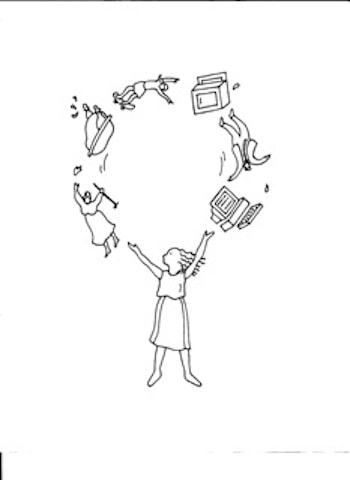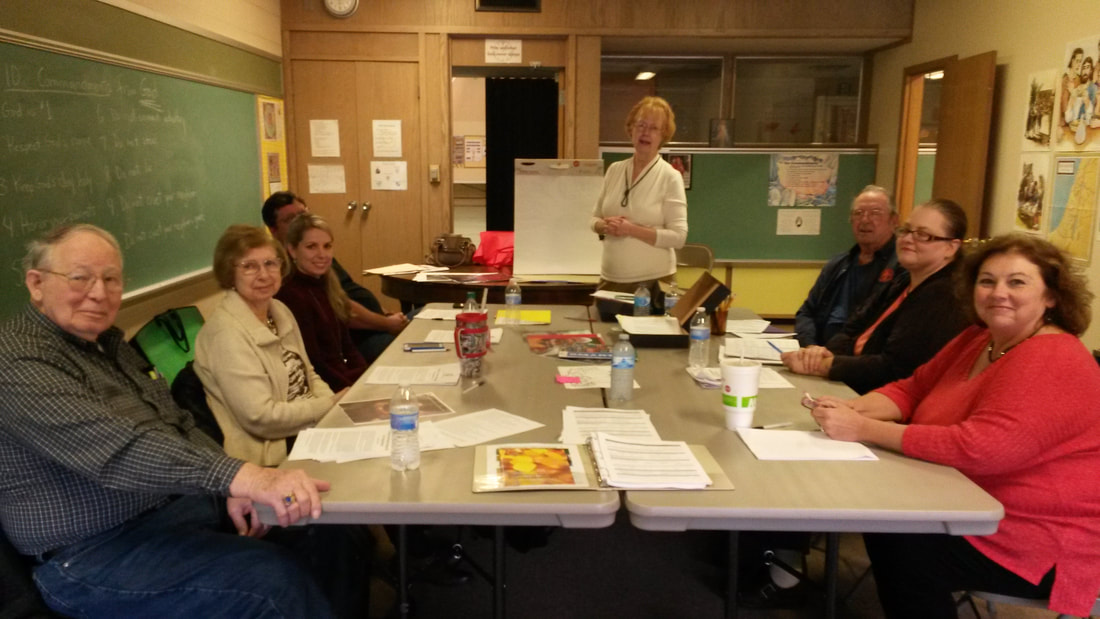|
When someone advises you to, “take care of yourself”; that doesn’t explain how. Elder caregiving is so new that some methods are still under development. However, we know some things that work and some to avoid. Self care does not mean a day at the spa. For many caregivers such a day would be out of reach financially or out of time to devote to a spa. Therefore, plan to care for yourself in moments, not hours. Think about your life like your heart; it beats all the time. Actually your heart takes a tiny rest between each beat that allows it keep going. When you care for yourself in moments, you pause and continue.
Try these ideas. Put up a sign saying, I NEED A MOMENT, to remind yourself to pause. Put up other signs family can see to remind them that you might need a moment before you can respond to their requests. Is the person in need bleeding or on fire? If the answer is no, then it’s OK for you to take a moment. It’s OK to train your family to allow you to do so. It’s OK for you to ignore repeated pleas for your attention (for a moment). Training takes time but you’re worth it. What do you do in that moment? Be sure you are safe. If you’re up on a ladder, get down first. Focus on something blank, like a wall or the ceiling. Breathe, deeply, through your nose, hold and count to 3 or 4. Let your breath out through your mouth but slowly; 1-2-3-4. Now, if you can afford the time, try looking at something peaceful; out a window, at a picture, or at some memento that is meaningful to you. Breathe again the same way. Many caregivers respond with; “I don’t have time to …” You’re right, time is at a premium. Most caregivers find themselves in that role at the same point they also have the house-the spouse-the kids-the job-the pets and MOM! You have a lot on your plate. Sometimes caregivers believe they can wait until they have time. By waiting until later, the damage from lack of self care will have done its worst. Undoing damage is much harder. The best intervention is prevention. Prevention comes in bits of time you claim now. Suppose you actually have a whole hour to yourself. It’s a gift! Ask yourself, “What refreshes me?” Notice I didn’t say what can I eat nor where can I sit down? Some caregivers eat to cope with stress. We need nourishment but not that way. Rhythmic movement, like walking, can help us feel less worn and is surprisingly refreshing. If you can’t go far; walk around the house or around the block. If you live in an apartment building, walk in the hall. “Go get the mail”, that errand will buy you a few minutes. Try to set a self care routine just as you have set other routines with child care or at work. Routines help us get things done without doing us in. Some things to avoid include sugar and alcohol. The stress hormone, Cortisol, takes sugar and converts it into weight around your middle. Sugar may not be sweet; baked goods convert to sugar. As part of a balanced meal they’re fine; as a snack, not so much. Large amounts of food can have a numbing effect; like a Thanksgiving dinner. When we feel numb, our minds seem to turn off. When you see you have time and turn to the refrigerator; ask yourself why are you eating? In a similar way, alcohol can create a numb feeling. We believe we’re relaxed but a caregiver’s immune system is more vulnerable and needs extra protection that alcohol doesn’t provide. Alcohol is also a depressant, which won’t help caregivers. So how does one “turn off” the constant “list-making” that goes on in the caregiver’s mind? Try other things. Try relaxing teas like Passion Flower, Elder Flower or Chamomile. Try playing some relaxing music that’s meaningful to you. Try a rhythmic movement “dance” (try it with your partner). Try a hot shower or better, a hot bath. Try placing essential oil of lavender in your bedroom. All of these set the stage for relaxation. Develop your own mediation or routine to think about at bed time instead of a to-do list. There are also tapes available. So self care comes in moments you claim as your own. To learn more ways to cope, take our course: Preparing to Parent Your Parent.
0 Comments
If you developed symptoms such as poor sleep, changed appetite, or more serious conditions, you’re not alone. According to The Executive Summary: Caregiving In The US 17%-35% of caregivers report poorer health.
Caregiving creeps. At first it’s the occasional errand. Then it’s dealing with financial matters. Other senior caregiving issues pile on; unpaid bills, medications ignored, and inaccurate reports about doctor appointments. You find that you’re monitoring medications, and accompanying your senior to the doctor. All the while, there are other parts of your life; your spouse and children, your job and home. Trying to do all these tasks as a caregiver while also keeping up with your own life becomes a monumental job! Something has to give. Where are you in all these duties? Many caregivers believe they can take care of themselves “when they have time”. Caution: caregiving you have no more time. Self care is vital to preserving yourself, your family, your job, and your sanity. Senior Sidekicks’ course; Preparing to Parent Your Parent explains why caregivers need to do self-care. Senior Sidekicks knows how busy you are. This course is convenient; delivered to your area: your church. We offer it at convenient times; evenings, weekends, or lunch hours. You receive 5 classes and a manual for one low price. If you bring your significant other, they pay half price. Call Senior Sidekicks today to learn more. 217-787-5866. Once upon a time there were two sisters. Mary built a cabin by the lake with her husband. They sold their house in town upon retirement. The other, Beth, also wanted a “cabin in the woods”. She and her husband planned to retire there as soon as their youngest child finished college.
Things did not turn out as planned. Mary developed lung cancer. She needed to be closer to medical care. Those winding lake roads were not plowed in the winter. She wrote that “The bugs never stop” at the lake. Her condition made it hard for her to keep up with such a house. Since the lake house was new, they had almost no equity yet, and they had to sell. They took a loss as they moved back to town. Beth had a different set of problems. Her husband developed some odd behaviors after he retired. She found it uncomfortable keeping house with him underfoot. She confessed to her daughter that she was considering a divorce! Thankfully, they had not built a cabin in the woods or they would have had no relief from each other. Her husband finally enrolled in a program and participated in local archeology projects. One day the Sherriff’s car drove into her driveway. He announced that her husband had died of a heart attack on one of these projects. Now, Beth was a widow with a child still in college! Thankfully, they had not started to build this cabin. How would she have managed to finish its construction and sale by herself? She didn’t want to live so far from town now that she was alone. What can we learn from these sisters?
|
Author "A Senior Moment" is written by Ms. Sara Lieber, owner of Senior Sidekicks. Ms. Lieber has over 30 years of experience in senior care. Archives
March 2024
Categories
All
|




 RSS Feed
RSS Feed